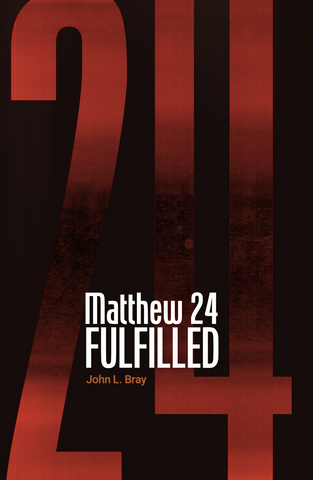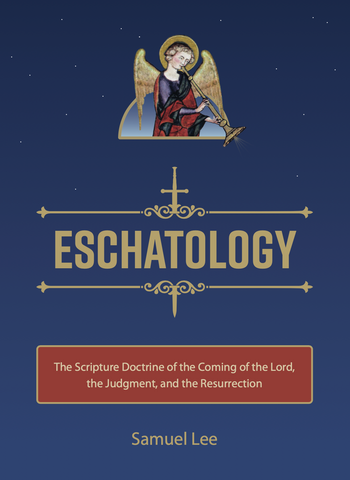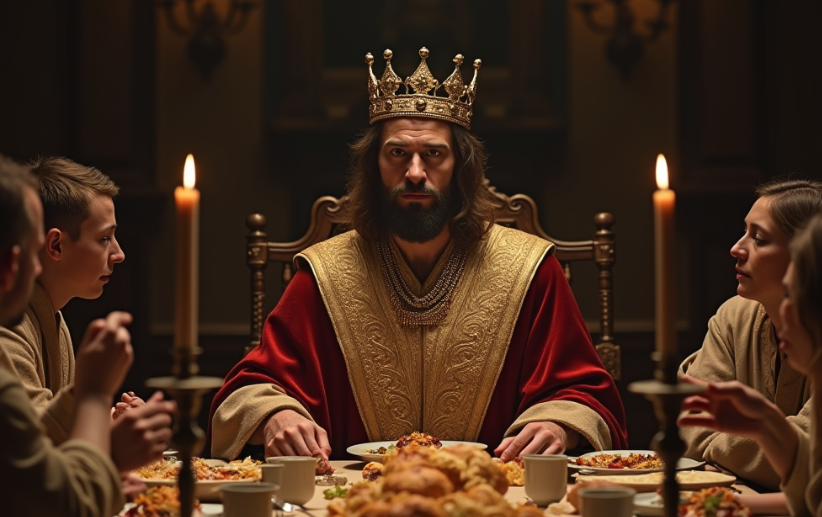This is Part Two. To read Part One, click here.
In order to get the full context of the Parable of the Great Banquet, it is important to read both Luke’s and Matthew’s version (Mt. 22:1–14). In Matthew, the great banquet is actually a wedding feast given on the occasion of the marriage of the king’s son. Matthew’s placement of this parable is interesting because it immediately follows Jesus’ telling of several other parables, including the Parable of the Vineyard and the Tenants. Removing any doubt whom Jesus had in mind, Matthew tells us that “When the chief priests and the Pharisees heard his parables, they perceived that he was speaking about them” (Mt. 21:45). Matthew 22 begins: “And again Jesus spoke to them in parables, saying…” so we have no doubt that the chief priests and Pharisees remain as the primary audience. It doesn’t take a biblical scholar to make the connection that God the Father is the king, Jesus is the king’s son, and the Church is the bride. There are many other details in Matthew’s version that Luke doesn’t include, but space forbids exploring these further at this time.
Back to Luke 14 and Jesus’ telling of the Great Banquet. We are informed that “many” were invited and had apparently accepted the invitation and promised to come when everything was ready. However, when the servant began to deliver the news that the time for the banquet had arrived, the invited guests “began to make excuses” about why they couldn’t attend. Luke lists three specific examples of the excuses given:
The first said to him, ‘I have bought a field, and I must go out and see it. Please have me excused.’ And another said, ‘I have bought five yoke of oxen, and I go to examine them. Please have me excused.’ And another said, ‘I have married a wife, and therefore I cannot come.’ (14:18–20).
Note how weak these excuses are. Surely the first two didn’t buy land or oxen sight unseen, but this is the impression they give to avoid the obligations of the banquet. The third claims he can’t come since he recently married. Remembering that Matthew tells us this feast was to celebrate the king’s son’s wedding, it is an interesting choice of excuse to be sure. What is even more interesting is that these “excuses” are found elsewhere in Scripture, specifically, in Deuteronomy 20. Grant Osborne makes the connection that many overlook:
Apparently everyone accepts at the first stage, and at the last minute “all alike,” every single person who had said they would come, begins turning the invitation down and making flimsy excuses. It almost sounds like a conspiracy to reject and humiliate the host, but that is never said. The reason they are poor excuses is that each of the guests should have known earlier, and they insult and shame the host in front of the whole community. The three excuses here parallel the three discipleship excuses of 9:57–62 and possibly also the three in Deuteronomy 20:5–7 for refusing to participate in the holy war. The point is that they are not truly valid and are intended to disgrace him. [1]
This explains why the host becomes “angry” and “enraged” with these responses to his call to come to the banquet. Matthew tells us about the drastic measures the king took to show his displeasure: “The king was angry, and he sent his troops and destroyed those murderers and burned their city” (Mt. 22:7). The king’s reaction seems to indicate that this was the last straw in a series of broken promises, and of course it is. But before we get to that, let’s first explore Grant Osborne’s connection of Deuteronomy 20.

Matthew 24 Fulfilled
In his book, Southern Baptist Reverend John Bray states: "Present-day students of eschatology seem woefully ignorant of the writings of past theologians on these subjects. There was a time (prior to the mid-1800s) when the most prominent interpretation of Matthew 24 was from the preterite standpoint, and the dating of Revelation was believed to be at an earlier date than is now believed." Grasp what this book teaches, and you won't waste any more of your time on the pre-mil, pre-trib fiction put out by the so-called "prophecy experts." Matthew 24 Fulfilled examines the issues related to popular "end-times" hysteria and counters with a view consistent with all of Scripture.
Buy NowVerses 5–7 give three specific exemptions to war for those of military age in ancient Israel: “Then the officers shall speak to the people, saying, ‘Is there any man who has built a new house and has not dedicated it? Let him go back to his house, lest he die in the battle and another man dedicate it. And is there any man who has planted a vineyard and has not enjoyed its fruit? Let him go back to his house, lest he die in the battle and another man enjoy its fruit. And is there any man who has betrothed a wife and has not taken her? Let him go back to his house, lest he die in the battle and another man take her.’” (Deut. 20:5–7)
Note how these situations closely align with the excuses given by the dinner guests who had initially accepted the invitation to come. Building a new house would require buying a field or a piece of land first, planting a vineyard would require oxen to plow and prepare the ground, and of course betrothal precedes marriage. These three situations were considered “excused absences” from going to war. The question is, why would Jesus have the dinner guests give these very same excuses to exempt themselves from the banquet?
Most commentators agree with F. F. Bruce on this point: “The three excuses quoted all mean the same thing—‘I’ve better things to do.’” [2] Likewise, Robert H. Gundry: “All three dishonor the banquet-giver both by their refusals and by the lame excuses they give for not coming.” [3] Others, like Craig S. Keener, notice the Deuteronomy 20 connection for the third excuse: “This man’s excuse is a valid one for not going to war during the first year of marriage (Deut 20:7; 24:5; cf. 1 Maccabees 3:56), but it is not valid for skipping a feast one had promised to attend.” [4] Oddly, most miss—or don’t attempt to explain—the three-fold connection of the banquet excuses to the Deuteronomic exemptions to war.
While having better things to do and dishonoring the host are valid interpretations, they don’t make full sense of the parable, especially considering that Matthew is ultimately making God the Father the host. It was God, after all, Who gave these three war exemptions to Moses in the first place. These exemptions were meant to show grace to individuals in various stages of life who were just starting out. God was essentially saying that Israel needed men to fight away from home as well as men to build back home; the growth of the Kingdom required both. Those now offering excuses for not attending the banquet understand that they are being summoned to something more than an evening party. They are being invited to leave behind the familiar traditions of the Old Covenant and join the New Covenant and enter the new promised land of the Second Joshua (Jesus). In other words, there was a long-term responsibility here and an expectation of a new life. Their reasons for not coming to the banquet show that they weren’t willing to accept the terms of the New Covenant holy war being waged by the Father and His Son.
This should immediately remind us of another parable, one that Jesus tells in Matthew 21:28–32 about two sons:
“What do you think? A man had two sons. And he went to the first and said, ‘Son, go and work in the vineyard today.’ And he answered, ‘I will not,’ but afterward he changed his mind and went. And he went to the other son and said the same. And he answered, ‘I go, sir,’ but did not go. Which of the two did the will of his father?” They [the chief priests and elders, 21:23] said, “The first.” Jesus said to them, “Truly, I say to you, the tax collectors and the prostitutes go into the kingdom of God before you. For John came to you in the way of righteousness, and you did not believe him, but the tax collectors and the prostitutes believed him. And even when you saw it, you did not afterward change your minds and believe him.”
Notice who goes in first: the ones who actually did the will of the father, not those who said they would. In both this parable and the Great Banquet, it is the most unlikely of people who get to enter. Tax collectors, prostitutes, the poor, the crippled, the lame, and the blind all enter the kingdom of God while the religious and civil leaders are excluded. Accepting the invitation is the easy part, but actually showing up for the banquet requires effort and sacrifice.
R. C. Sproul’s comments on Luke’s version of the parable are instructive:
God had been pleading with Israel for centuries. The first invitation had gone out years previously to enter into the feast of heaven. And now the servant of God, God’s Son himself, comes with that second invitation to say that the feast is ready and it is time to attend. But the response of the Pharisees was to make flimsy excuses as to why they could not embrace the kingdom of God. They rejected the invitation of the Son of God to come to the banquet feast. Jesus warns them that God is angry, that he is going to bring destruction upon Jerusalem and the Jewish nation, and instead he is going to turn to the Gentiles. He is going out to the highways and the byways to bring those people into the kingdom of God, who at this point are no-people. This is what the prophet Hosea predicted: those who were not God’s people would be called his people. Gentiles were invited to the kingdom of God only after those who were kinsmen according to the flesh of Israel refused the invitation. Gentiles were not children of Abraham, they were strangers to the kingdom of God. But then God found them in their blindness, crippledness and lameness, and invited them to come to his feast. Those to whom the invitation was originally given are shut out…
No wonder the Pharisees plotted Jesus’ death. No wonder he was killed. He had just told them, face to face, that they were not going to make it to the banquet feast. Not only would they not be in the highest seats, but they would not be at the feast at all, because they had rejected the second invitation; the invitation that was given by the Son of God himself. [5]
In reality, this was not a new revelation at all. It was a fulfillment of another passage in Deuteronomy:
“The Lord will cause you to be defeated before your enemies… You shall betroth a wife, but another man shall ravish her. You shall build a house, but you shall not dwell in it. You shall plant a vineyard, but you shall not enjoy its fruit. Your ox shall be slaughtered before your eyes, but you shall not eat any of it. Your donkey shall be seized before your face, but shall not be restored to you. Your sheep shall be given to your enemies, but there shall be no one to help you.” (Deut. 28:25a, 30–31)
If they wouldn’t come to God’s feast, even what they had would be taken away from them and enjoyed by another. This is what Jesus was teaching over and over in His parables. Samuel Lee agrees in his 1859 book, Eschatology, or The Scripture Doctrine of the Coming of the Lord, the Judgment, and the Resurrection:
…let Jesus be followed from the house to the sea-side, where he went, the better to accommodate the “great multitude” desirous to hear him, and who were looking not to future generations as to be benefited by the instructions of the great Teacher, but to themselves and the present, and let it be asked if these parables had not a specific application to these hearers, as Jews, and Jews to whom the Son of Man had come as the Messiah, who were now by him addressed, and who were soon as a nation to meet the consequences of the rejection of his messages. [6]
Or as the Apostle John puts it: “He came to his own, and his own people did not receive him. But to all who did receive him, who believed in his name, he gave the right to become children of God, who were born, not of blood nor of the will of the flesh nor of the will of man, but of God.” (John 1:11–13). Those who naively believe that “eating bread in the kingdom of God” is based on ethnicity or nationality or status will be surprised to find their name missing from the guest list (see Matt. 7:21–23).

Eschatology, or The Scripture Doctrine of the Coming of the Lord, the Judgment, and the Resurrection
The preterist interpretation of Matthew 24 has a long and respected history. Any church or pastor that does not know this is uneducated on the topic. Samuel Lee published Eschatology, Or, The Scripture Doctrine of the Coming of the Lord, the Judgment, and the Resurrection in 1859. What’s lacking in so much of today’s scholarship is the willingness to let Scripture interpret Scripture even if the results may call for a refinement of long-held prophetic views.
Buy Now[1] Grant R. Osborne, Luke: Verse by Verse, ed. Jeffrey Reimer, Elliot Ritzema, and Danielle Thevenaz, Awa Sarah, Osborne New Testament Commentaries (Bellingham, WA: Lexham Press, 2018), 365.
[2] F. F. Bruce (General Editor), New International Bible Commentary (Grand Rapids, MI: Zondervan, 1979), 1212.
[3] Robert H. Gundry, Commentary on the New Testament (Peabody, MA: Hendrickson, 2010), 297.
[4] Craig S. Keener, The IVP Bible Background Commentary: New Testament, Second Edition. (Downers Grove, IL: IVP Academic: An Imprint of InterVarsity Press, 2014), 219.
[5] R. C. Sproul, A Walk with God: An Exposition of Luke (Great Britain: Christian Focus Publications, 1999), 294–295.
[6] Samuel Lee, Eschatology, or The Scripture Doctrine of the Coming of the Lord, the Judgment, and the Resurrection (Powder Springs, GA: American Vision, [1859] 2025), 36.

